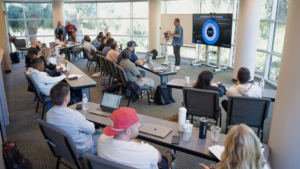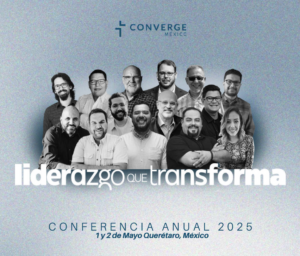Every church has a First Impressions Team — those who welcome greet and serve all who attend your public gatherings. But how many churches have a Second Touch Team — those who are responsible for following up and seeking to connect those new attenders into the life of the church?
Every pastor gets frustrated with the lack of retention from the Easter outreach. The development of a Second Touch Team can help reduce that frustration. Here are a few things you can do to ramp up your game in following up on your Easter guests.
1. Touch your guests within 36 hours of their visit in a meaningful way.
How will you WOW them? When you wow your first-time guests you communicate that you are serious about the mission Jesus has called you to and that people are important to you. The difference between growing churches and declining churches is in how they treat the first-time guest.
Think about how you will respond to the following people individually and personally:
- Those who fill out the communication card — how will you WOW them?
- Those who fill out a prayer request — how will you tell them they have been prayed for?
- Those who want more information on a certain ministry — how will they be contacted?
- Those who gave their first gift to the church — how will you thank them and encourage them in becoming regular givers?
- Those who register their children for children’s ministry — how will you recognize the children? What could you send them to WOW them and their parents?
Thom Rainer writes, “If a person visits your church for the first time, the probability of their returning a second time is considerably higher if you make contact with them within 36 hours of their visit.” Herb Miller takes it to another level, “When laypersons make 15-minute visits to the homes of first-time worship visitors within 36 hours, 85 percent of them return the following week.”
What are you willing to do to see people come back again and again?
2. Offer next steps or come-back activities for guests.
Make sure you clearly and passionately communicate the “why” behind the next steps as well as the “what.” Here are a few next steps or come-back ideas.
- Announce a new message series that will inspire them to come back.
- Announce a family friendly event that is fun, creative and connecting.
- Hand out the Spiritual Journey Guide so they visually see the next steps in discipleship.
- Offer a newcomers luncheon or dinner.
- Offer a seeker study such as Bible 101 or Christianity 101.
- Offer a serving opportunity within a church-wide community service project.
Remember the difference between leaders and followers is that leaders know the next steps. For good retention you will need to embrace the next steps principle.
3. Think about the next 30 days, not just the next seven days.
Allen Ratta writes, “The research shows the more a visitor visits a church the greater the odds are that they will eventually become a part of that church. Yet, churches consistently behave in ways that ignore this critical fact. For example, churches often place all of their efforts in the first-time visitor. Reality is that churches will receive a far greater return on investments that they make in second and third and subsequent visitors. What is lacking in many visitor assimilation efforts is the ability to direct and mobilize key resources to repeat visitors. Sustained follow-up is essential to effective visitor assimilation.”
- Second visit ideas
- Personal invitation to a family friendly event.
- Handwritten invitation to newcomers luncheon.
- Phone call by a volunteer asking, “How can we pray for you and your family?”
- Help them connect with a small group leader in their area.
- Third visit ideas
- Invitation to spiritual formation retreat or seminar.
- Invitation to attend a membership seminar or class.
- Invitation to Bible 101 or Christianity 101 small group.
- Send a brochure on the ways you will help them grow spiritually and serve in the church.
- Phone call from a staff person to help them take the next steps into the life of the church.
- Fourth visit ideas
- Set up an appointment to discuss where they are on their spiritual journey.
- Invitation to dinner with other newcomers at the pastor’s or staff member’s home.
What we measure reveals what really matters to us. - Invitation to serve on a ministry team.
4. Measure the effectiveness of your retention process.
Gary McIntosh cites the following research:
- A church must keep about 16 percent of its first-time guests to experience a minimal growth rate of 5 percent a year.
- Rapidly growing churches keep between 25 and 30 percent of their first-time guests. Declining churches keep only about 5 to 8 percent of their first-time guests.
Do you know how you are doing in retaining your visitors? The churches that track attendance, visitors and visitor retention are statistically the churches that are growing.
Conclusion
Take time this week to focus in and develop a plan for getting your Easter crowd back. This preparation will pay rich dividends not only for Easter but also for the rest of the year as you apply these practices to every Sunday worship experience.



